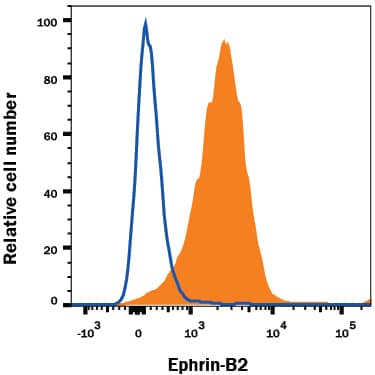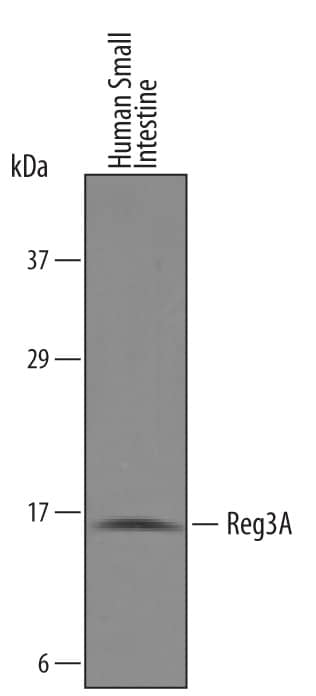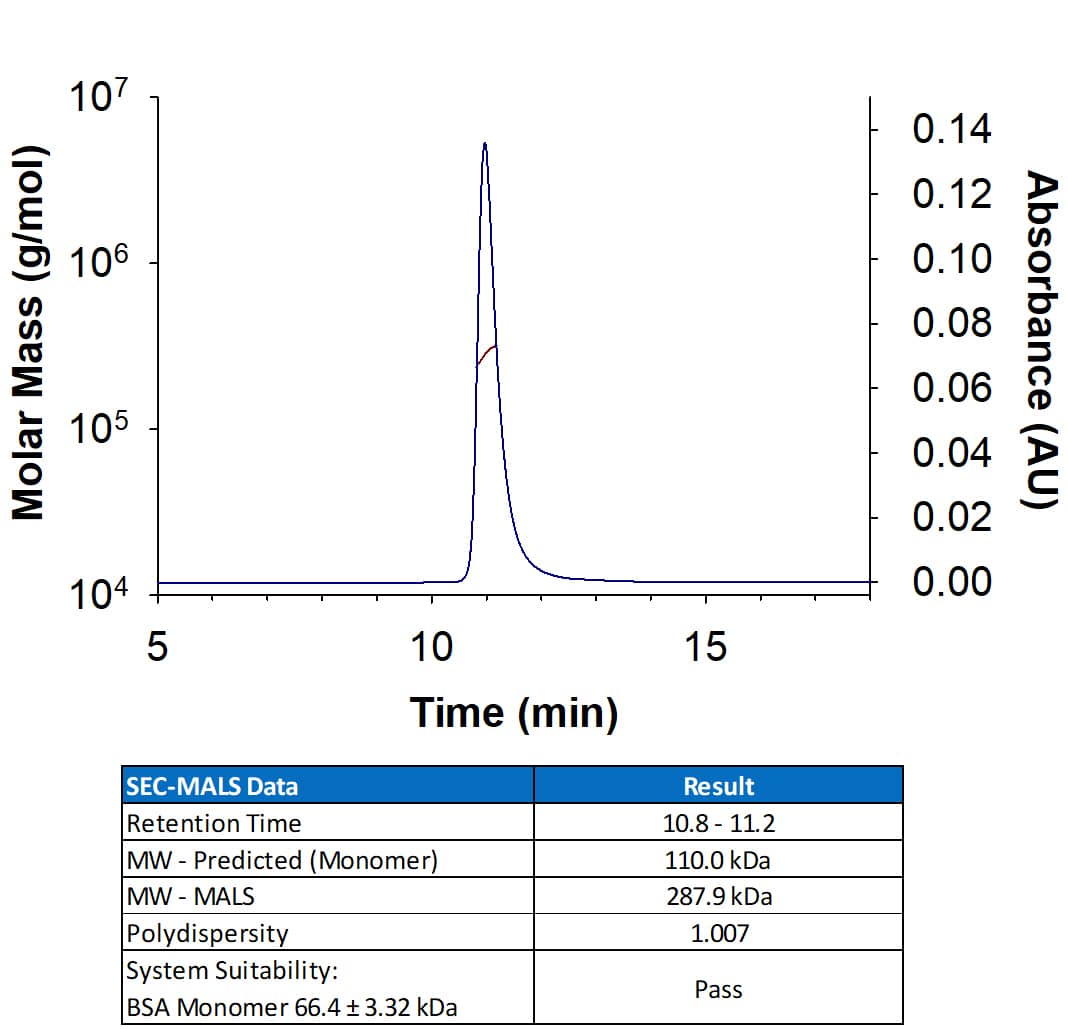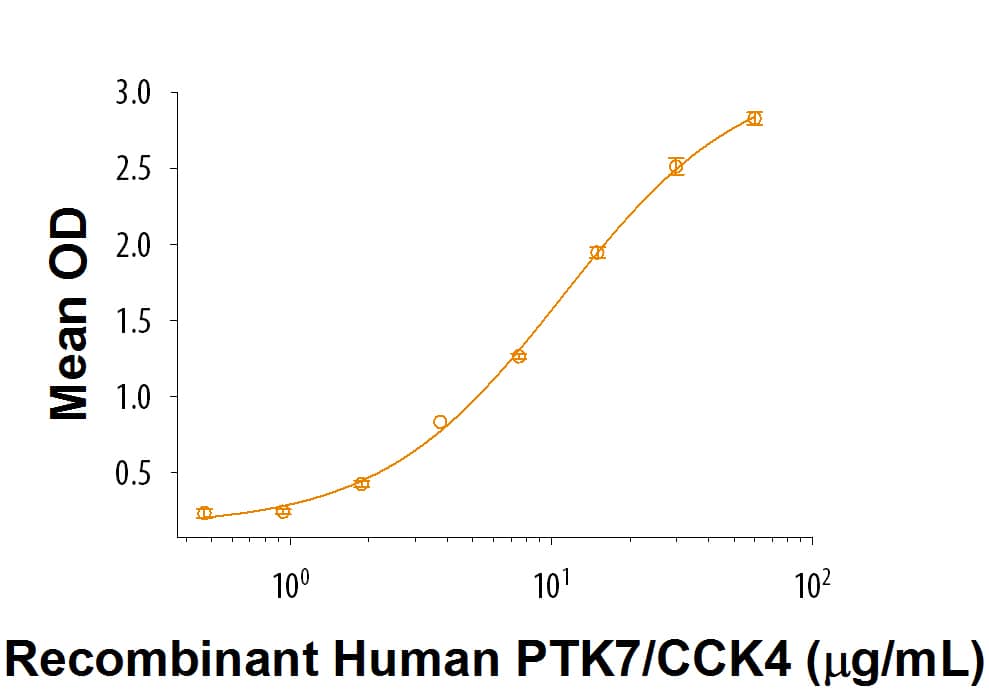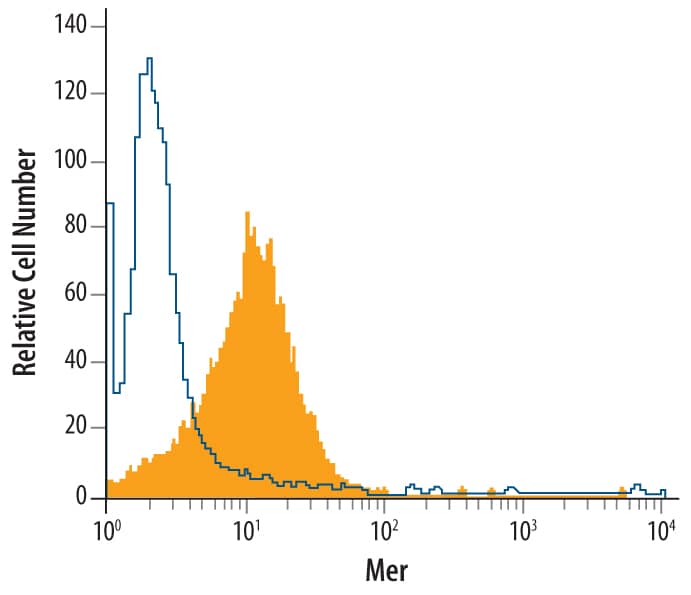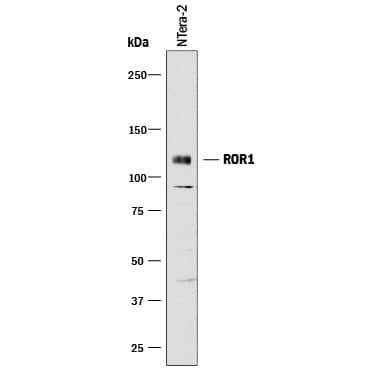Human SMPD1 Antibody Summary
His62-Pro628
Accession # NP_000534
Customers also Viewed
Applications
Please Note: Optimal dilutions should be determined by each laboratory for each application. General Protocols are available in the Technical Information section on our website.
Scientific Data
 View Larger
View Larger
Detection of Human SMPD1 by Western Blot. Western blot shows lysates of human cerebellum tissue. PVDF membrane was probed with 1 µg/mL of Goat Anti-Human SMPD1 Antigen Affinity-purified Polyclonal Antibody (Catalog # AF5348) followed by HRP-conjugated Anti-Goat IgG Secondary Antibody (Catalog # HAF019). A specific band was detected for SMPD1 at approximately 85 kDa (as indicated). This experiment was conducted under reducing conditions and using Immunoblot Buffer Group 8.
 View Larger
View Larger
Detection of Human SMPD1 by Simple WesternTM. Simple Western lane view shows lysates of human brain (cerebellum), loaded at 0.2 mg/mL. A specific band was detected for SMPD1 at approximately 87 kDa (as indicated) using 50 µg/mL of Goat Anti-Human SMPD1 Antigen Affinity-purified Polyclonal Antibody (Catalog # AF5348). This experiment was conducted under reducing conditions and using the 12-230 kDa separation system.
Preparation and Storage
- 12 months from date of receipt, -20 to -70 °C as supplied.
- 1 month, 2 to 8 °C under sterile conditions after reconstitution.
- 6 months, -20 to -70 °C under sterile conditions after reconstitution.
Background: SMPD1
Sphingomyelin phosphodiesterase, also known as acid sphingomyelinase and encoded by the SMPD1 gene, is a lysosomal phosphodiesterase which belongs to the acid sphingomyelinase family (1). SMPD1 catalyzes the hydrolysis of sphingomyelin to ceramide and phosphorylcholine. Ceramide, a bioactive lipid, has emerged as an important signaling molecule involved in a variety of cellular processes such as cell differentiation, apoptosis, and proliferation (2). Activation of SMPD1 occurs by the removal, chemical modification or dimerization of its C-terminal cysteine residue (3). Deficiencies of SMPD1 result in a lysosomal storage disorder referred to as Niemann-Pick disease (4). rhSMPD1 was expressed without the last three C-terminal residues, and is therefore constitutively active.
- Schuchman, E.H. et al. (1991) J. Biol. Chem. 266:8531.
- Melendez, A.J. et al. (2008) Biochim. Biophys. Acta 1784:66.
- Qiu, H. et al. (2003) J. Biol. Chem. 278:32744.
- Smith, E.L. and Schuchman, E.H. (2008) FASEB J. 22:3419.
Product Datasheets
Citations for Human SMPD1 Antibody
R&D Systems personnel manually curate a database that contains references using R&D Systems products. The data collected includes not only links to publications in PubMed, but also provides information about sample types, species, and experimental conditions.
5
Citations: Showing 1 - 5
Filter your results:
Filter by:
-
Acid sphingomyelinase expression is associated with survival in resectable pancreatic ductal adenocarcinoma
Authors: Gregory C. Wilson, Sameer H. Patel, Jiang Wang, Kui Xu, Kevin M. Turner, Katrin Anne Becker et al.
Journal of Molecular Medicine
-
Acid Sphingomyelinase regulates the localization and trafficking of palmitoylated proteins
Authors: Xiahui Xiong, Chia-Fang Lee, Wenjing Li, Jiekai Yu, Linyu Zhu, Yongsoon Kim et al.
Biology Open
-
Ceramide-induced cleavage of GPR64 intracellular domain drives Ewing sarcoma
Authors: Suvarna, K;Jayabal, P;Ma, X;Wang, H;Chen, Y;Weintraub, ST;Han, X;Houghton, PJ;Shiio, Y;
Cell reports
Species: Human
Sample Types: Cell Lysates
Applications: Western Blot -
Enrichment of NPC1-deficient cells with the lipid LBPA stimulates autophagy, improves lysosomal function, and reduces cholesterol storage
Authors: O Ilnytska, K Lai, K Gorshkov, ML Schultz, BN Tran, M Jeziorek, TJ Kunkel, RD Azaria, HS McLoughlin, M Waghalter, Y Xu, M Schlame, N Altan-Bonn, W Zheng, AP Lieberman, R Dobrowolsk, J Storch
The Journal of Biological Chemistry, 2021-05-21;0(0):100813.
Species: Human
Sample Types: Cell Lysates
Applications: Western Blot -
Acid sphingomyelinase deactivation post-ischemia promotes brain angiogenesis and remodeling by small extracellular vesicles
Authors: Ayan Mohamud Yusuf, Nina Hagemann, Xiaoni Zhang, Maria Zafar, Tanja Hussner, Carolin Bromkamp et al.
Basic Research in Cardiology
FAQs
No product specific FAQs exist for this product, however you may
View all Antibody FAQsIsotype Controls
Reconstitution Buffers
Secondary Antibodies
Reviews for Human SMPD1 Antibody
There are currently no reviews for this product. Be the first to review Human SMPD1 Antibody and earn rewards!
Have you used Human SMPD1 Antibody?
Submit a review and receive an Amazon gift card.
$25/€18/£15/$25CAN/¥75 Yuan/¥2500 Yen for a review with an image
$10/€7/£6/$10 CAD/¥70 Yuan/¥1110 Yen for a review without an image

